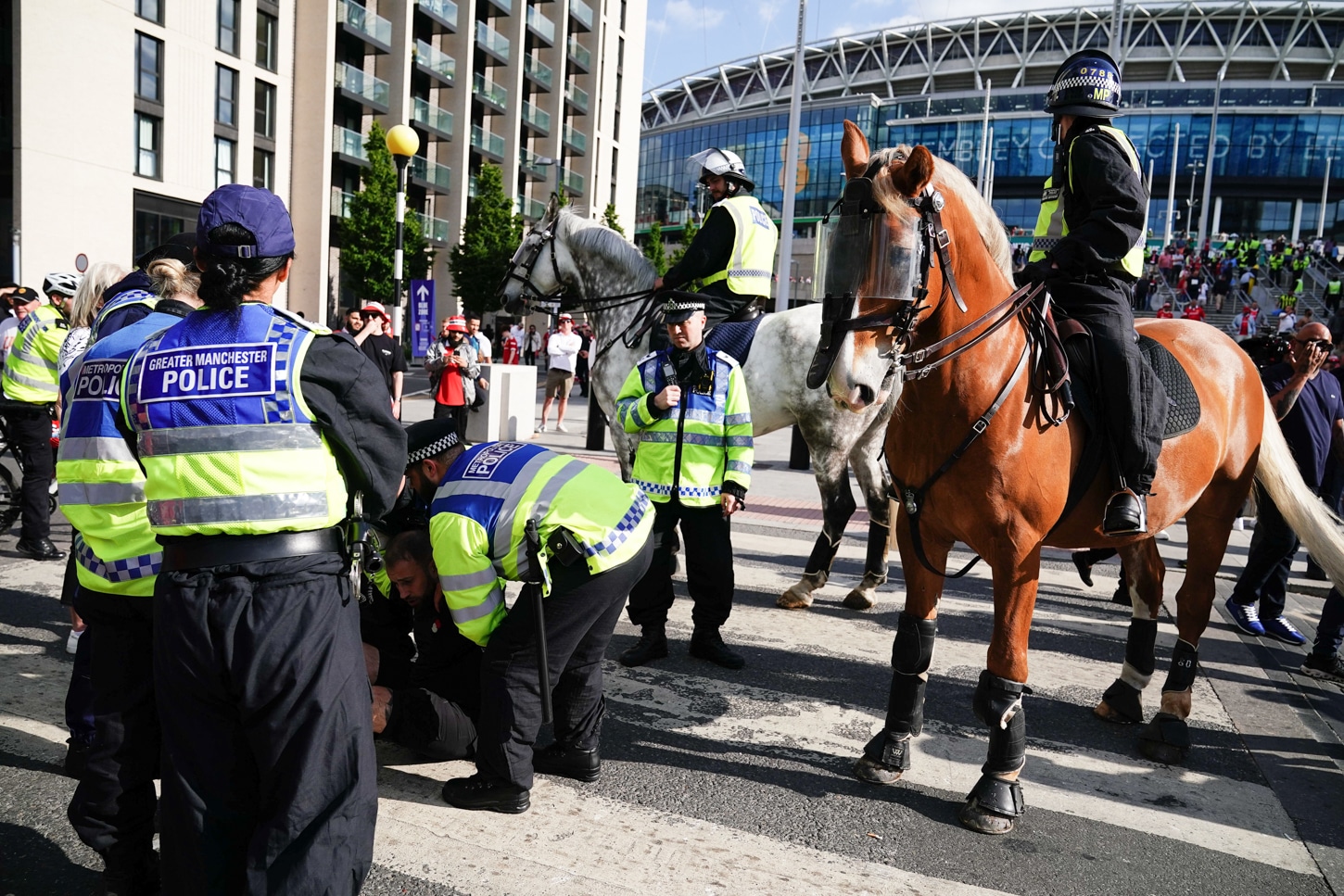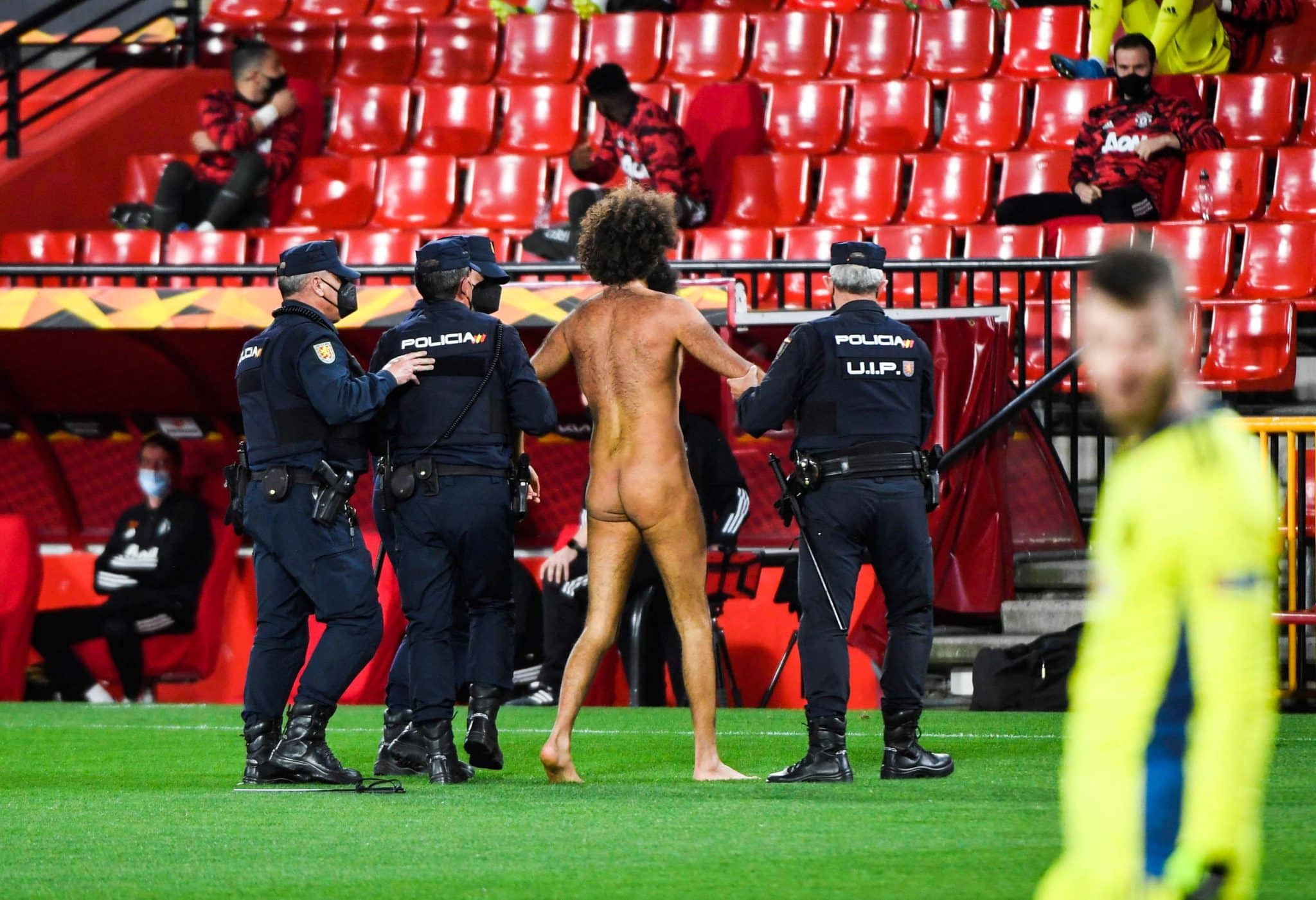The UK Home Office has released the latest football-related arrest figures, with a rise last season largely attributed to a new offence included under the Football Spectators Act.
Here are the headlines you need to know from the latest release:
There were 2,264 football-related arrests during the 2022-23 season
This figure is an increase on the previous season's figure, 2,198.
However, this most recent figure includes 200 arrests for possession of class A drugs, an offence only added to the Football Spectators Act in November 2022.

Additionally, 101 arrests in England and Wales related to the World Cup in Qatar. This is in line with the figures now counting arrests made in England and Wales even if the fixtures were played overseas.
So, while the headline is a ‘record-breaking year for football-related arrests', this is rather misleading. It's more of a maintained level, or, if anything, a relative decrease compared to last season.
The relative number of arrests has decreased
The number of arrests in the 2022/23 season worked out as 5.0 per 100,000 fans, compared to 5.2 per 100,000 fans in the 2021/22 campaign. This was due to an increase in overall attendance, rising to 45 million.
A total of 682 new football banning orders have been imposed
This is the most new banning orders put in place in a single season since the 2010/11 campaign, and an increase from the previous year of 32%. This a major uptick, whichever number you consider.
How many football banning orders are there?
The total number of football banning orders is now 1,624.
This total is less than the pre-COVID-19 pandemic total, which was 1,771.
Football banning order FAQs
What is the minimum football banning order?
Football banning orders last for a minimum of three years. This means the total number of banning orders in place at any one time can vary significantly.
What can you get a football banning order for?
The nature of football banning orders has changed significantly since their 1980s introduction to curb hooliganism.
The main reason for receiving a football banning order will be if you're convicted of what the court deems a ‘relevant offence,' but this doesn't necessarilly mean an offence committed at the football. However, the prosecution will need to prove the offence was related to football, somehow.
Football banning orders are put in place by a court if it is believed it will help prevent violence or disorder.

Offences that could lead to a football banning order can include:
At the football: Possession of alcohol or being drunk while entering/trying to enter ground; Throwing of missiles at a football match; Indecent or racialist chanting; Going onto the playing area; Unauthorised sale of tickets.
Anywhere, if football-related (24 hours either side of a match): Disorderly behaviour; Any offence involving the use or threat of violence towards another person or property; Any offence involving the use, carrying or possession of an offensive weapon; Drunk and disorderly; Driving or being in charge of a vehicle with excess alcohol, or driving or being in charge of a vehicle while unfit through drink or drugs.
You don't have to be convicted to receive a football banning order, though. You can receive a football banning order purely because a Police Officer has intelligence leading them to believe that you were part of violence or disorder in the UK or elsewhere, linked to football.
You can also now be given a football banning order for “abuse based on football tragedies,” which falls under, the Crown Prosecution says, the Public Order Act 1986 and “harassment, alarm or distress” or “intentional harassment, alarm or distress.”
Furthermore, fans are regularly given football banning orders for the most minor offences which do not match the punishment. The Football Supporters' Association claim they have heard banning order applications made against “fans pushed onto the pitch during goal celebrations” and “teenagers who've been found with a can of beer in their pockets.”
Is a football banning order a criminal conviction?
A football banning order is a court order. It often follows a criminal conviction, but is not a conviction itself. However, if you are found to have disobeyed the football banning order, this is a criminal offence and could be punished with a six-month prison sentence.
How do I appeal a football banning order?
Football banning orders will normally be issued at the Magistrates' Court. You will then be able to appeal this decision to the Crown Court and should seek legal advice.
If you currently have a football banning order, you can also appeal to have its duration lessened and have the order cancelled two-thirds of the way through.
Which club had the most football-related arrests in 2022/23?
A total of 89 West Ham United fans were arrested during the 2022/23 season, the highest of any club and six higher than the next most, who came from Manchester United. Leeds United fans came third in the arrest list, with 69.

Were there any arrests at Women's Super League games?
No. This was the first season in which the Home Office statistics included the Women's Super League and Women's Championship, but there were no arrests at games in either league.
